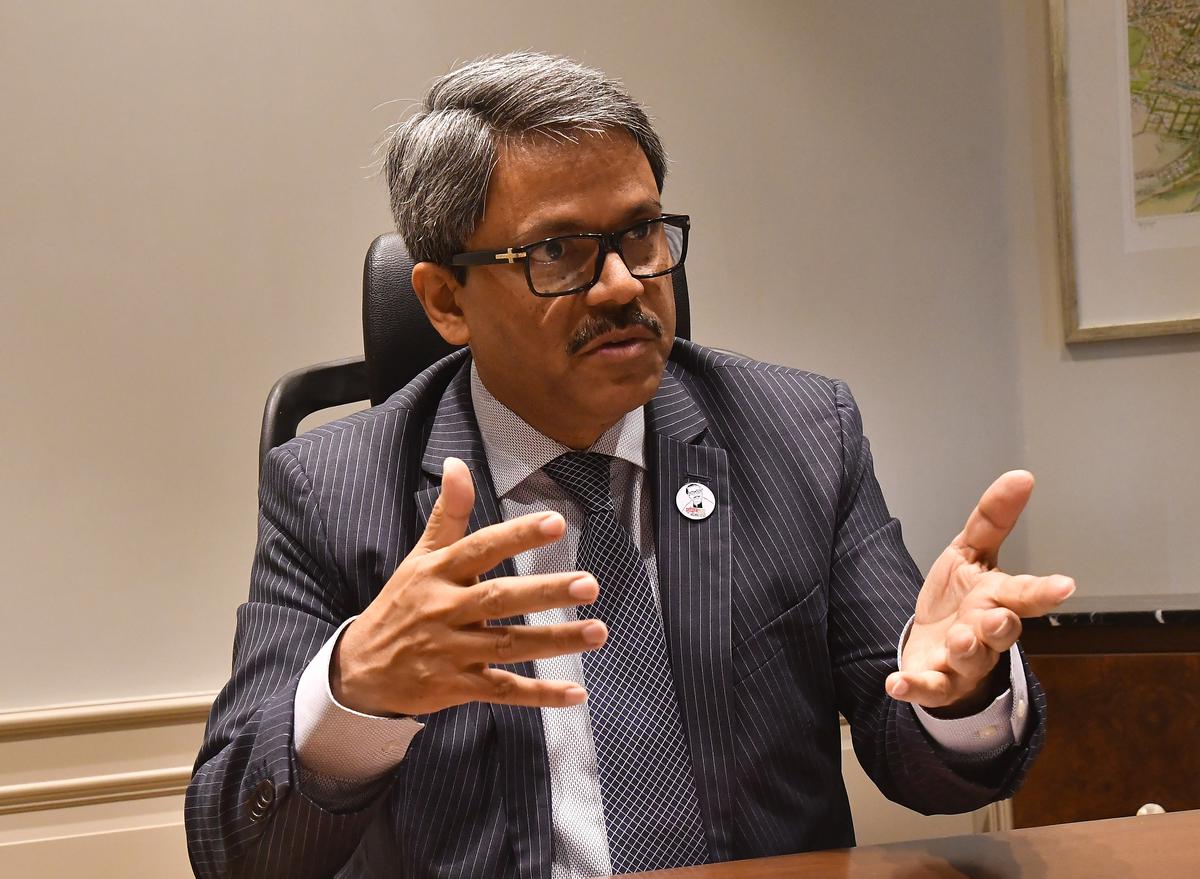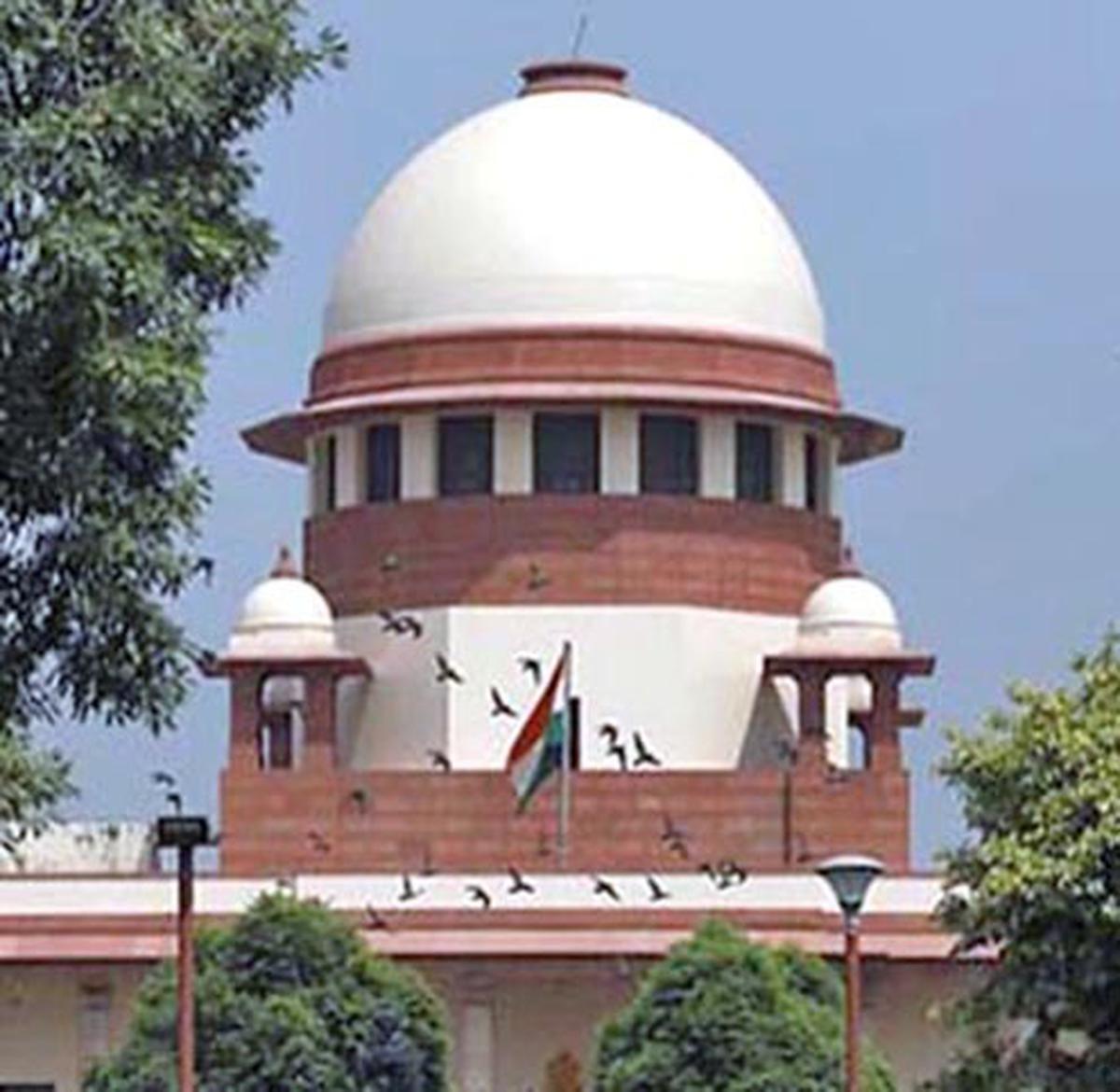US President Joe Biden, Japanese Prime Minister Fumio Kishida and Indian Prime Minister Narendra Modi attend the Indo-Pacific Economic Framework for Prosperity launch event at Izumi Garden Gallery on Monday. , Photo Credit: AP
(The Political Line newsletter is India’s political landscape explained every week by Varghese K. George, senior editor at The Hindu. You can subscribe here to get the newsletter delivered to your inbox every Friday.)
Where India stands on trade policies
Global trade is undergoing a fundamental change. Nationalism remains a strong force in most countries, and the protection of national markets, particularly labor markets, is a priority for many governments. The pandemic added new strength to nationalism. Trade was considered a matter of national security by the Donald Trump administration, and his successor Joe Biden follows the same policy. Trade is no longer about efficiency, but about strategic options, and even about weapons of war, as is being used against Russia. At the same time, there are efforts to create new trade blocs of only friends – a departure from the pre-globalization logic that trade would turn enemies into friends. Given all this backdrop, there is no reason for India under Prime Minister Narendra Modi to be soft on global trade. India is trying to protect its market from global companies which have historical advantages. Creating a strong manufacturing sector in India is a priority of the Modi government. When we take all these into account, India’s decision to stay out of the US-led Joint Declaration on Trade Pillar Indo-Pacific Economic Framework Ministerial meeting in Los Angeles Understandable – Union Commerce Minister Piyush Goyal raised concerns over possible discrimination against developing economies.
India stays out of ‘trade pillar’ at Indo-Pacific meeting
India is walking a tightrope between the West and the rest in the management of its global relations. Mr Modi was with Russian President Vladimir Putin, Chinese President Xi Jinping, Iranian President Ibrahim Raisi, Turkish President Recep Tayyip Erdogan at the Shanghai Cooperation Organization summit in Samarkand, Uzbekistan this week. Western countries see all these leaders as their opponents.
Shanghai Cooperation Organization fights off ‘anti-West Dictators’ Club’ tag
great agreement
Chhattisgarh’s Congress chief minister Bhupesh Baghel has drawn up an elaborate plan to portray a connection between his government and Hindu deities and symbols. The Mata Kaushalya temple in Chandkhuri, on the outskirts of Raipur, renovated by the government in 2020, is one of several projects towards that end. Mr. Baghel wins as Rashtriya Swayamsevak Sangh (RSS) chief Mohan Bhagwat had recently visited the temple at his invitation. BJP leaders have also questioned the validity of the claim that Chandkhuri was the birthplace of Kaushalya, the mother of Lord Rama. It can also be seen as a victory for the RSS and Mr. Bhagwat, who says all parties should adopt Hindutva.
federalism path
borders, and relationships across borders

Bangladesh Minister of State for Foreign Affairs Shaharyar Alam speaking during an interview at ITC Maurya Hotel in New Delhi on Wednesday. , Photo credit: Shiv Kumar Pushpakar
Five Indian states – Assam, West Bengal, Mizoram, Meghalaya and Tripura – share India’s international border with Bangladesh. Bangladesh has invited the chief ministers of all the northeastern states to Dhaka. According to a senior Bangladesh official, several projects related to the Northeast were discussed during Prime Minister Sheikh Hasina’s recently concluded visit to India, and the chief ministers’ visit could take the relationship to a “second phase”.
Bangladesh invites chief ministers of India’s northeastern states
The development of the Northeast is closely linked to India’s relations with Bangladesh and Myanmar. as this lecturer states, the region “had easy access to ports in present-day Bangladesh, especially Chittagong, through the Brahmaputra and Barak river systems prior to independence. Partition in 1947 allowed trade in tea, timber through these rivers and local-level border trade”. , did not immediately affect the transportation of coal and oil, helping to maintain undivided Assam’s position as the state with the highest per capita income until the early 1950s.
In 2011, when Prime Minister Manmohan Singh visited Bangladesh, chief ministers of four northeastern states were part of his delegation. Here is an article from that time on how the Northeast region and Bangladesh can grow and develop together.
Northeast, Gateway to Bangladesh Relations
The Center has been lenient towards insurgent groups in the Northeast, a contrast to its policy towards Maoists and insurgents in Kashmir. Union Home Minister Amit Shah said the government aims to resolve inter-border disputes in the Northeast and reach a settlement with all armed insurgent groups in the region before 2024. He was speaking on the occasion of signing of tripartite MoU between Govt. of India, the Government of Assam and the eight armed tribal groups of Assam.
Aim is to compromise with all armed groups in Northeast: Amit Shah
caste in saffron
Uma Bharti was the first saffron-clad Chief Minister of the BJP. Hailing from the OBC community, she is one of the leaders who helped spread the Hindutva agenda among the middle castes and Dalits. Due to its popularity, the BJP has reduced its focus on the subaltern regions. There is resentment in the party on this question. Ms. Bharti has openly raised this issue. “I’m telling [Chief Minister] Shivraj [Singh Chouhan] Yes, the caste balance in governance and administration has been disturbed since the beginning.
Uma Bharti said, there is caste and regional imbalance in Madhya Pradesh
weak argument

A general view of the main building of the Supreme Court of India in New Delhi, India, on Thursday. , Photo Credit: Getty Images
The Supreme Court is hearing arguments on its legality 10% quota for economically weaker sections (EWS). The EWS quota is for persons with a gross annual family income of less than Rs 8 lakh, excluding members of the Backward Classes, Scheduled Castes, Scheduled Tribes and Other Backward Classes. The petitioners argue that the 103rd Amendment, by excluding the backward classes from the EWS quota, betrays the very intention of the quota, which is meant for middle-class members of the forward castes.
business politics
The rivalry between Maharashtra and Gujarat has a long history. The decision of multinational mining company Vedanta Ltd to set up a $20 billion Vedanta-Foxconn semiconductor manufacturing facility in Gujarat, changing its original plan to set it up at Talegaon near Pune, has triggered a political storm in Maharashtra. The opposition Shiv Sena and NCP, led by Uddhav Thackeray, have accused the state government headed by Eknath Shinde, who parted ways with Thackeray, and the BJP, of failing to protect Maharashtra’s interests. Competition between states to attract investors is not unheard of. But the Center tilting the scale in favor of a State is perhaps something new.
After free lunch, now free breakfast in Tamil Nadu schools
Tamil Nadu has launched a new scheme to provide breakfast to school children amid the ongoing debate over freebies. “It should not be counted [a] freebie, donation or gift,” Chief Minister MK Stalin said, He cited the Justice Party’s 100-year-old pre-independence focus of all chief ministers before him to emphasize on welfare and ensure children’s nutrition.